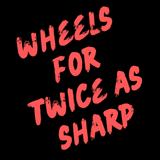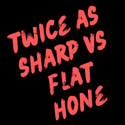
⚙️ Shear Sharpening Training: Sharpening Machines Module — Flat Hone vs. Twice As Sharp
Our Price
$99.00
- SKU:
- MOD002
⚙️ Shear Sharpening Training: Sharpening Machines Module — Flat Hone vs. Twice As Sharp
Behind every perfectly sharpened shear is the right machine — and understanding how those machines differ is essential to achieving professional results. The Sharpening Machines Module explains the major differences between the Flat Hone and the Twice As Sharp systems, and why each plays a very specific role in professional shear sharpening training.
Flat Hone Machines — The Standard for Convex (Hamaguri) Edges
The Flat Hone is the gold standard for Japanese Hamaguri convex edge sharpening. Its flat, rotating abrasive plate allows precise control of angle and pressure, maintaining the delicate radius that defines the true convex edge.
- Designed specifically for Hamaguri-style convex edges
- Preserves natural radius and edge geometry
- Ideal for high-end Japanese and premium professional shears
- Produces ultra-smooth, high-polish finishes
Flat hones are slower and more technique-sensitive than belt systems, but their precision and edge preservation make them indispensable for advanced work.
Twice As Sharp Machines — Traditional Speed and Utility
The Twice As Sharp system is a belt-driven machine commonly used for general sharpening. It can process shears and other cutting tools efficiently, but its operation is very different from the flat hone. While it can technically sharpen a convex edge, it does not recreate a true Hamaguri radius — and that difference matters.
- Faster material removal for general and beveled edges
- Lower cost and easier learning curve for beginners
- Versatile for scissors, utility blades, and non-convex tools
- Not suitable for maintaining true Japanese convex geometry
What You’ll Learn in the Sharpening Machines Module
- The core differences between Flat Hone and Twice As Sharp systems
- How machine design affects edge geometry and performance
- Advantages and limitations of each system
- Why true convex sharpening requires a Flat Hone
- How to choose the right setup based on edge type and customer needs
Who This Module Is For
This module is designed for professional sharpeners and those in training who want to understand how machine choice impacts precision and quality. Whether you’re transitioning from general sharpening to high-end convex work or refining your existing workflow, this training will help you make informed decisions about equipment investment and technique.
Why This Module Is Critical
Every sharpener needs to know their tools. The difference between a belt-driven machine and a flat hone defines the type of edge you’ll produce — and the clients you can serve. Mastering this knowledge ensures consistency, safety, and quality across every shear you sharpen.
This module is part of our complete Professional Shear Sharpening Training Program, available through our Shear Sharpening Academy.
Related Modules
- Convex Edge Theory Module – Understand the Hamaguri edge and why it demands flat hone precision.
- Edge Types Module – Explore the characteristics of convex, beveled, and semi-convex edges.
- Oiling & Maintenance Module – Learn how proper cleaning and lubrication extend machine and shear life.
Explore the Complete Shear Sharpening Program →
FAQ
What’s the main difference between a Flat Hone and a Twice As Sharp machine?
The Flat Hone is designed for precision convex edge sharpening, while the Twice As Sharp is better suited for bevel or general sharpening. Each produces a distinctly different edge profile.
Can a Twice As Sharp machine create a true Hamaguri edge?
No — the Twice As Sharp can sharpen a convex-style edge but cannot replicate the smooth radius of a true Hamaguri edge without risk of flattening the geometry.
Which machine should I start with?
Beginners often start with a Twice As Sharp for its simplicity, but professionals seeking to service Japanese convex shears will ultimately need a Flat Hone for proper edge preservation.
Is this information part of the full training program?
Yes — this module is part of the Professional Shear Sharpening Training Course through our Shear Sharpening Academy.









